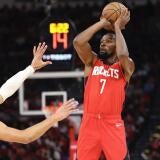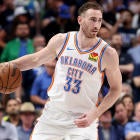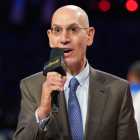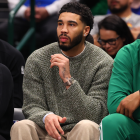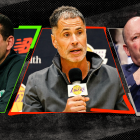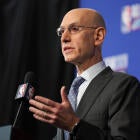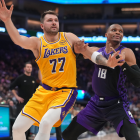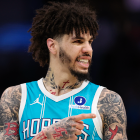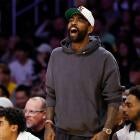Gordon Hayward retires from basketball after 14-year NBA career: 'It's been an incredible ride'
Hayward, 34, made the 2017 All-Star team before a career-changing injury

Gordon Hayward announced on Thursday that he is retiring from basketball. Hayward played 14 seasons in the NBA and made the All-Star team in 2017 as a member of the Utah Jazz.
"It's been an incredible ride and I'm so grateful to everyone who helped me achieve more than l ever imagined," Hayward wrote on social media.
Thank you 🙏🏻 pic.twitter.com/fqbw3WML0n
— Gordon Hayward (@gordonhayward) August 1, 2024
Hayward, 34, averaged 15.2 points, 4.4 rebounds and 3.5 assists in 835 career games. Before that, he starred at Butler in college, leading the Bulldogs to the NCAA championship game in 2010 under coach Brad Stevens. The Jazz selected Hayward No. 9 in the 2010 draft, and, for seven years in Utah, he improved every season, culminating his career-best 2016-17 campaign, during which he averaged 21.9 points (on 59.5% true shooting), 5.4 rebounds and 3.5 assists.
The following summer, Gordon signed with the Boston Celtics as an unrestricted free agent, reuniting with Stevens. At that point, it seemed like he would be a perennial All-Star, but his career changed almost as soon as he got on the court with his new team. On opening night against the Cleveland Cavaliers, Hayward fractured his tibia and dislocated his ankle after taking a horrifying fall in the first quarter. He missed the rest of the season, and, while he remained an effective player when he returned to the Celtics in 2018-19, he never reached the heights he did in Utah.
A free agent again in 2020, Hayward joined the Charlotte Hornets in a sign-and-trade. He averaged 19.6 points, 5.9 rebounds and 4.1 assists in his first season with the Hornets, helping them take a step forward in LaMelo Ball's rookie season. Injuries were a recurring issue throughout his time in Charlotte, though, and it traded him to the Oklahoma City Thunder this past February. His stint with the Thunder was mostly forgettable; Hayward was not in the rotation for the final three games of their second-round series against the Dallas Mavericks.
Near the beginning and the end of Hayward's pro career, he was a connective role player, a heady passer who could shoot, attack closeouts and consistently make good decisions on offense while holding his own defending multiple positions. In his prime, he was all of that and also a bucket-getter who, after honing his balance and footwork, could score at all three levels, finish through contact and serve as the No. 1 option for a 50-win team. It's a shame that version of Hayward wasn't around longer.






